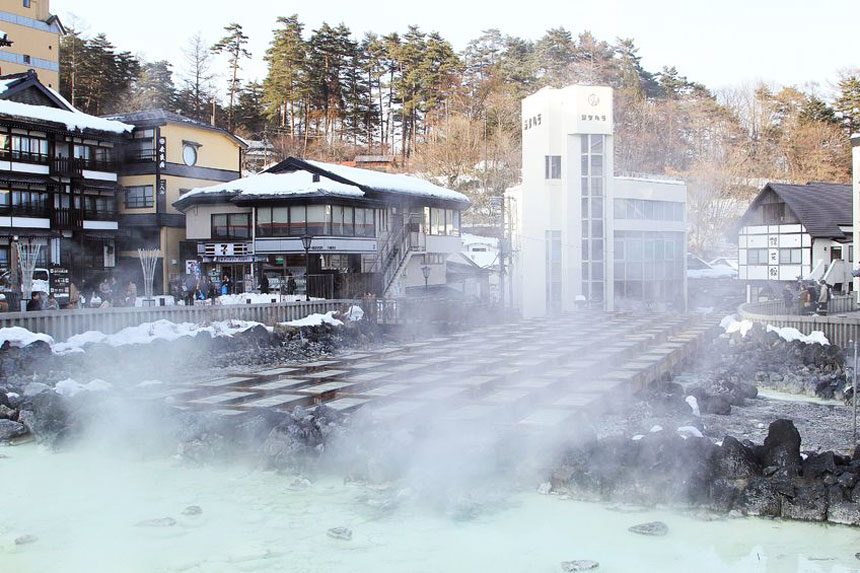
 Image credit: banky405/123rf
Image credit: banky405/123rfWhat
Onsens are gifts of nature that spring forth from the volcano-rich land of Japan. These Japanese hot springs are long believed to have healing properties.
During the Edo period, sick people stay at an onsen for several days or weeks until they are healed. This gave rise to Japanese inns, known as ryokans, which is popular among tourists nowadays.
Traditionally, locals who wish to bath at an onsen would travel to the rural areas. Fortunately, the capital city of Japan also has onsen spas or resorts that are as authentic as those in the countryside.
Onsens in Japan can be categorized as indoor or outdoor, gender-specific or unisex.
Why
An onsen bath is a relaxing way to soothe the mind and body. The presence of minerals in hot springs multiplies the health benefits of this unique Japanese bath.
When traveling to Tokyo, it is highly recommended that you spend at least one night at a ryokan with an onsen. This provides an authentic experience of living the Japanese way of life. Go Japanese at a ryokan, complete with tatami room, futon, welcome tea, onsen bath, Japanese massage, and sumptuous Japanese meal.
Best onsen in Tokyo
Saya-no-yudokoro is considered as one of the best onsens in Tokyo. It features a natural open-air onsen that has direct supply of water from Itabashi-Maeno Hot Spring. Complete your stay with a stroll in the beautifully manicured Japanese garden and a filling Japanese meal at the old-style restaurant.
LaQua is a spacious onsen spa located inside Tokyo Dome City. The hot spring water is sourced from Koishikawa Hot Springs. It boast an outdoor bath, a massage bath and three types of sauna. Pamper yourself with add-on treatments like massage, body scrub, and aromatherapy.
Jinata Onsen is located in Shikine Island, south of Central Tokyo. The place is 160 kilometres away but it is still an administrative part of Tokyo. This onsen offers a unique blend of hot spring and ocean water bathing experience. The natural tub only appears during low tide and can be accessed by anyone for free.